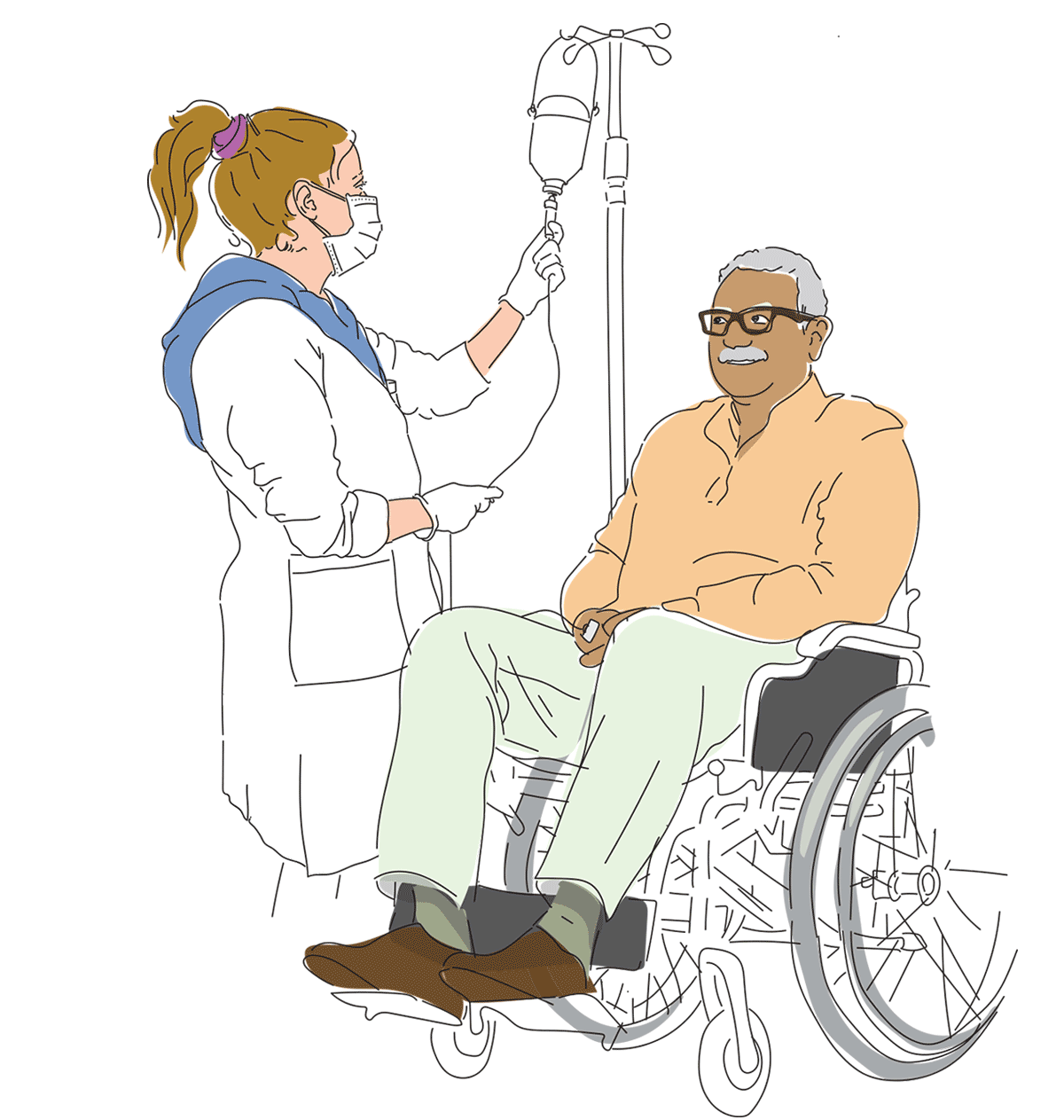Flagship initiatives
To strengthen support to Member States, WHO’s Regional Director has also launched three flagship initiatives. These address key bottlenecks and priorities to accelerate progress in implementing the strategic operational plan and achieving the health-related SDGs.
Expanding equitable access to medical products, investing in a resilient and sustainable health workforce, and accelerating public health action on substance use are among the key priorities in the Region.
These are three flagship initiatives that will serve as accelerators for the WHO’s Strategic Operational Plan for the Eastern Mediterranean Region, 2025–2028.

Expanding access to quality medical products helps ensure that everyone has access to quality health care in the Eastern Mediterranean Region.
Most countries in the Region are heavily reliant on imports to obtain the medical products their people need, which means that much of the money spent on essential medical products – by individuals, governments and funders – benefits other economies, not countries of the Region.
WHO’s flagship initiative aims to enhance equitable access to essential medical products by enhancing procurement and supply systems, bolstering local production capacity, and strengthening regulatory systems across the Region. A new regional pooled procurement mechanism will strengthen accessibility and improve countries’ bargaining position with manufacturers, while a programme of sustained technical support at country level will help build domestic capacities for production, distribution and regulation and elevate national regulatory authority (NRA) maturity levels in countries by 2028.
Regional flagship initiative 1: Expanding equitable access to medical products
Regional flagship initiative: Expanding equitable access to medical products
More than 50%
of all medicines in the Region are prescribed or used irrationally
15 countries
countries have not updated national medicine policy in a decade
More than 50%
of expenditure on medicines, vaccine and medical devices is wasted

The health workforce is the backbone of every health system, but there are critical gaps. According to current projections, the Eastern Mediterranean Region faces a shortage of 2.1 million doctors, nurses and midwives by 2030. There are significant disparities in the Region, with the density of physicians, nurses and midwives ranging widely.
Investing in the health workforce not only increases life expectancy, but also creates jobs and supports economic and social development.
WHO’s flagship initiative seeks to build a resilient, fit-for-purpose and sustainable health workforce across the Region to achieve universal health coverage, health-related SDGs and health security by 2030, while promoting equitable occupational opportunities and protecting health professionals from harm. To achieve this, the flagship proposes actions to increase investment in health workforce, scaling up and retaining the workforce for primary care and essential public health functions, and establishing a regional health workforce collaborative.
Regional flagship initiative 2: Investing in a resilient health workforce
Regional flagship initiative: Investing in a resilient health workforce

8 to 108 per 10 000 population
is the range of density of physicians, nurses and midwives across countries of the Region
2/3 of countries
experienced health workforce-related disruption to health services during the COVID-19 pandemic
6 countries
are now on WHO’s Health Workforce Support and Safeguards List

Substance use is a growing public health challenge in the Eastern Mediterranean Region. Rates of substance use exceed the global rate, and drug use disorders in the Region now impact 3.4 million individuals.
Despite this alarming increase, only 1 in 13 people receive the treatment they need, compared to 1 in 11 globally. Investing in substance use treatment offers significant returns, with US$4–12 saved for every dollar spent.
To address this urgent issue, WHO’s flagship initiative aims to reduce morbidity, mortality and social costs associated with substance use disorders through contextualized, evidence-based public health interventions in both stable and emergency settings. To this end, the flagship proposes integration of substance use disorder treatment at PHC level, decriminalization of substance use and promoting alternative measures such as education and treatment, and promoting life skills education in school and workplaces to discourage initiation of substance use in the first place.
Regional flagship initiative 3: Accelerating public health action on substance use
Regional flagship initiative: Accelerating public health action on substance use

6.7%
of the Region’s population aged 15–64 years have used drugs compared to 5.6% globally
Only 1 in 13
people receive treatment for substance use disorders in the Region
US$ 4–12
return on investment for every dollar spent on treating substance use disorders


